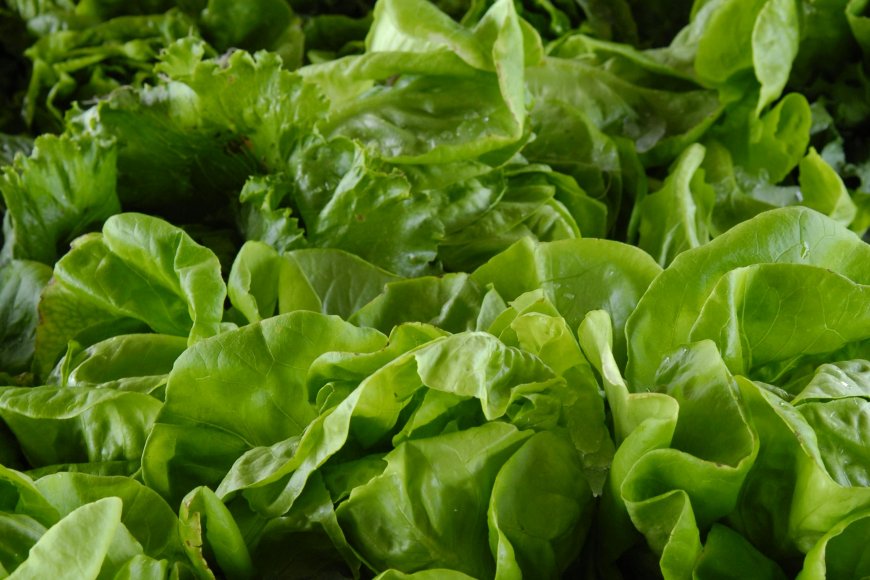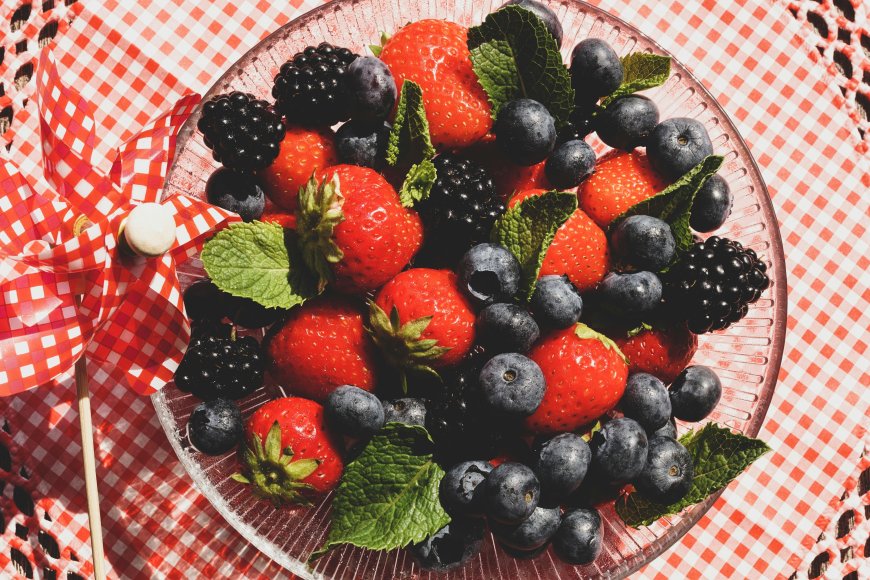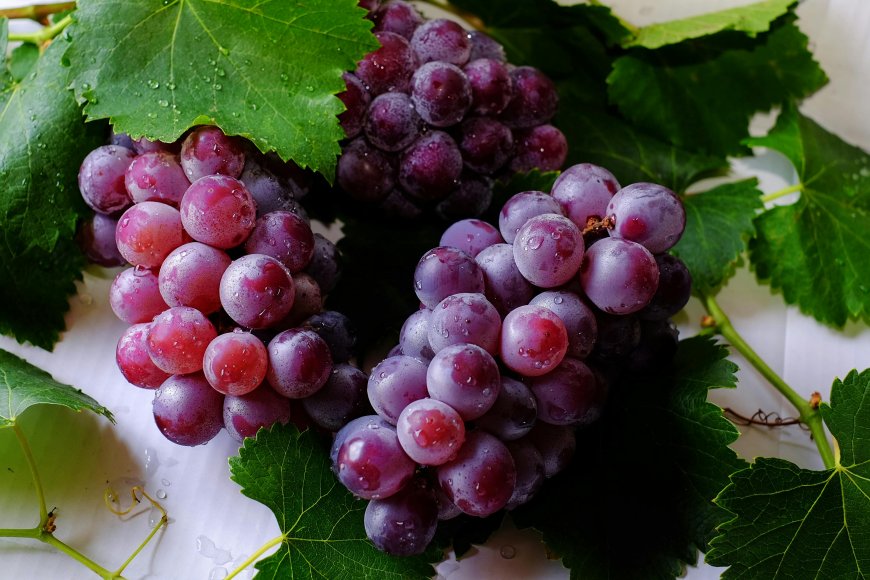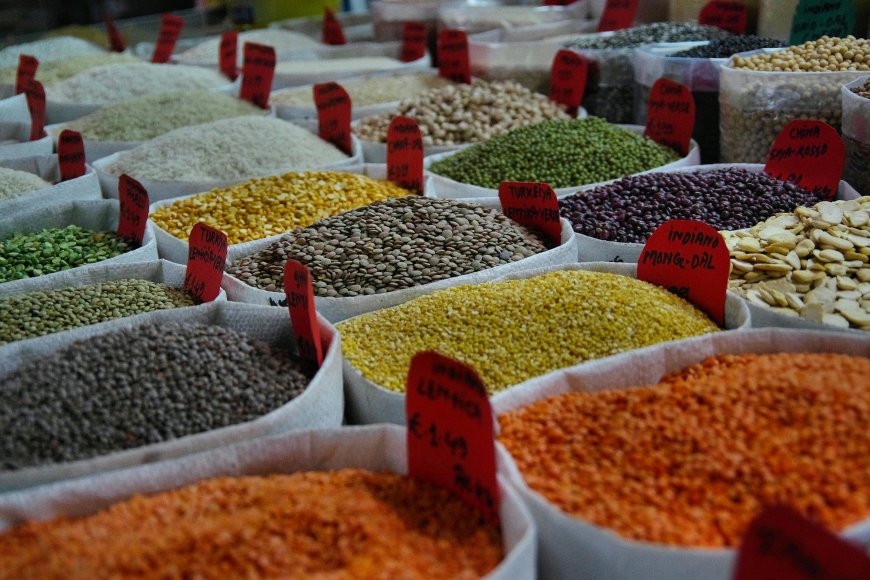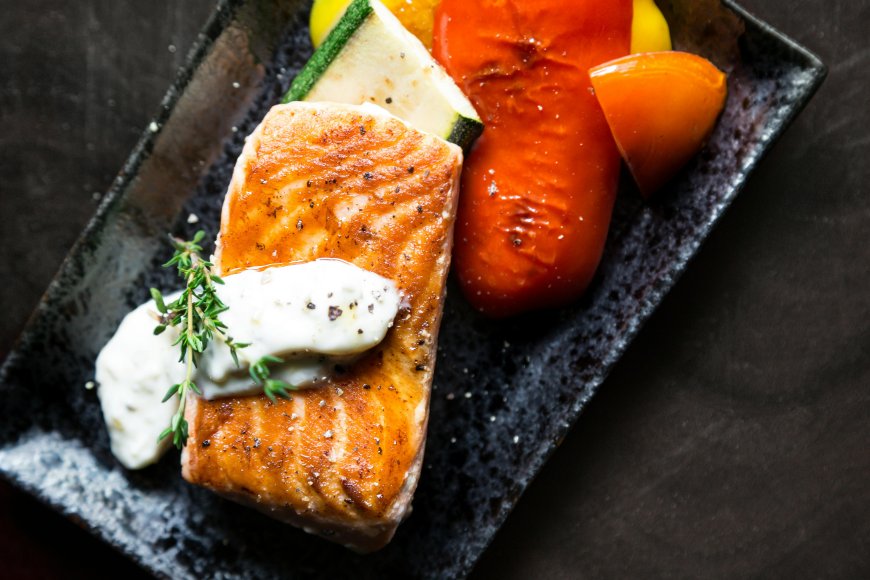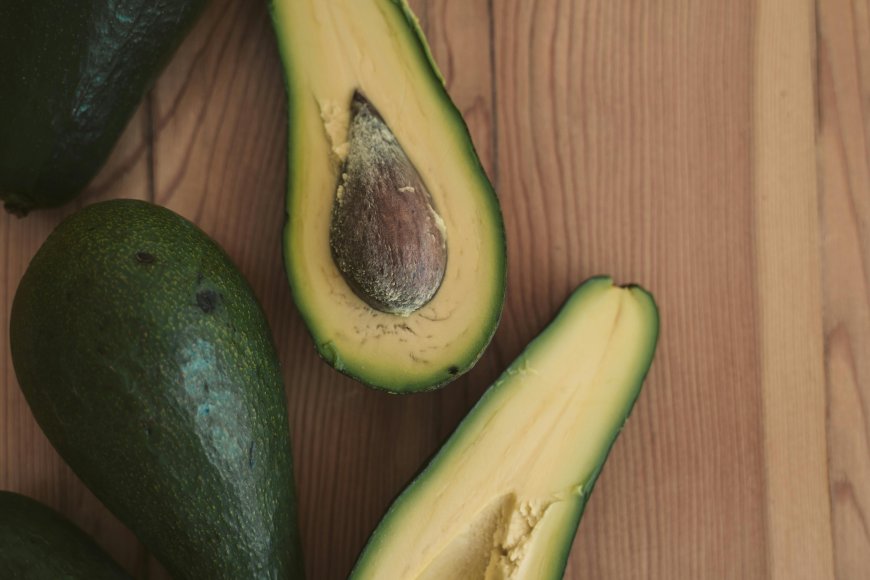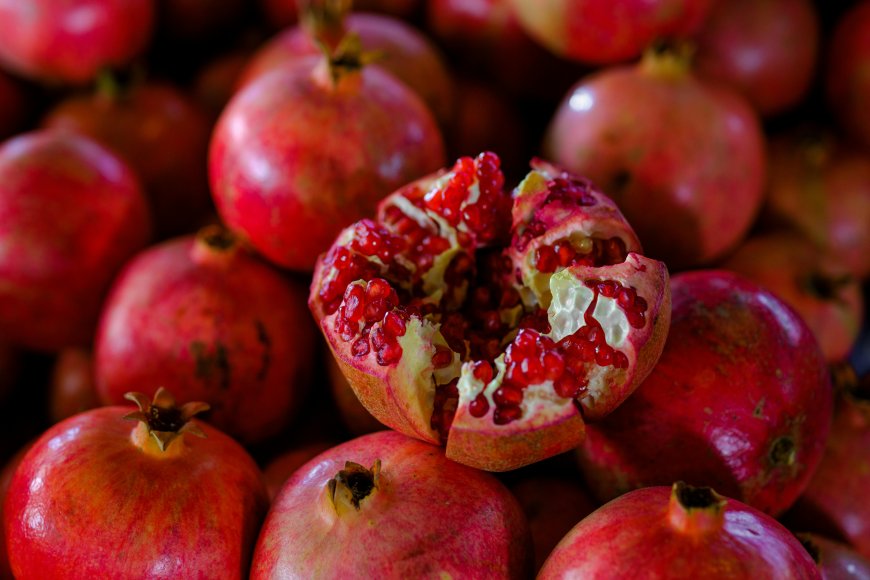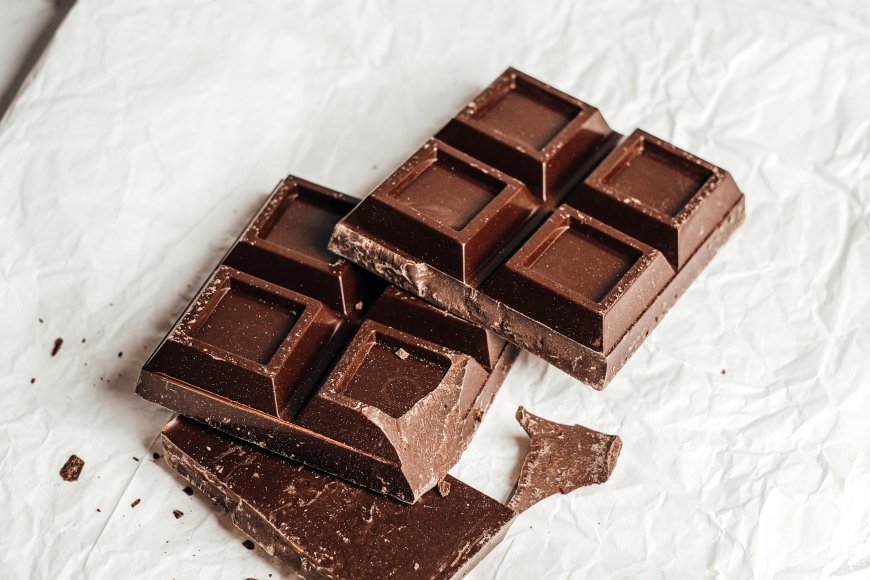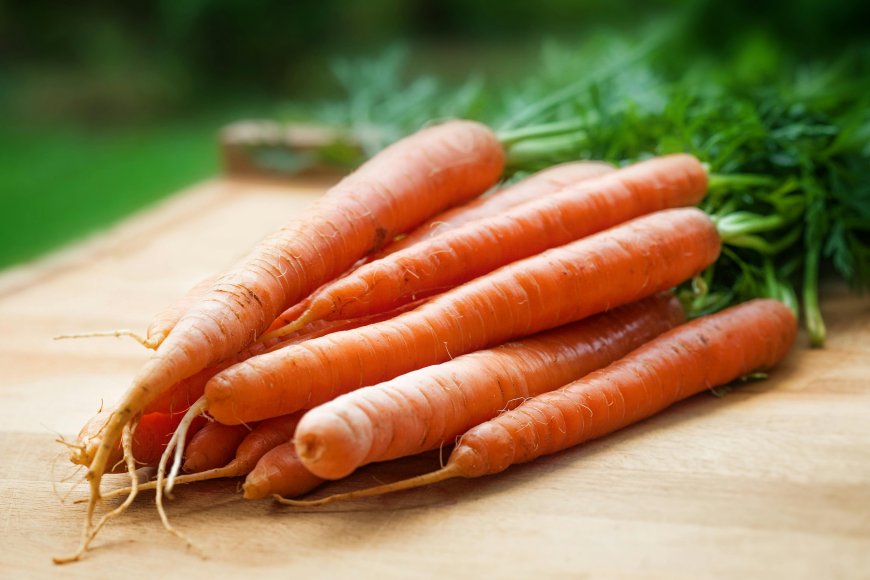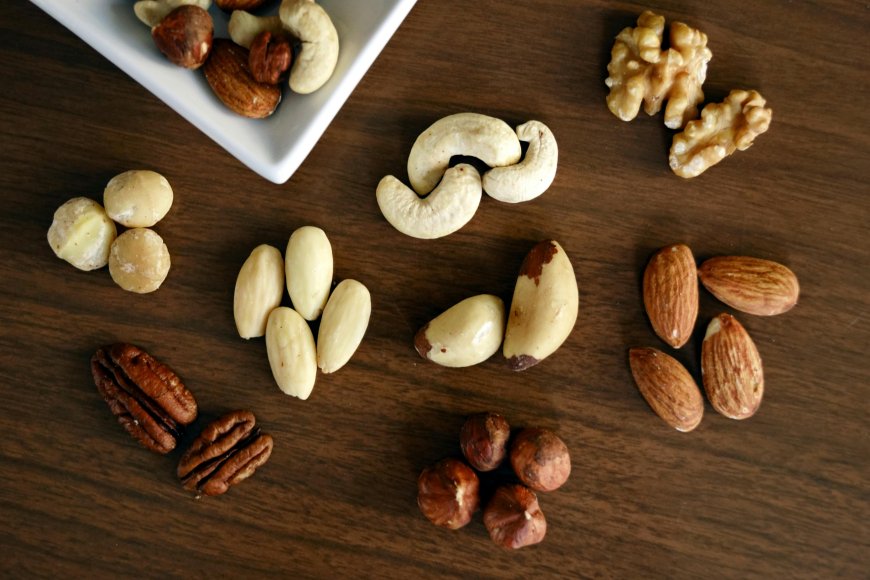Eat These Foods to Stay Younger: The Ultimate Guide to Aging Like Fine Wine, According to a Dietitian.
Discover the secrets to aging gracefully with our ultimate guide on foods for healthy aging. Uncover the best anti-aging diet, rich in antioxidants, omega-3s, and vitamins to keep your skin looking youthful, boost your immune system, and enhance longevity. From the benefits of dark chocolate to the skin-rejuvenating power of fruits and vegetables, learn how to look younger with food. Perfect for anyone looking to fight aging naturally and maintain a vibrant, healthy appearance through diet.
Introduction.
Aging is an inevitable journey, yet it offers us the beautiful opportunity to embrace it with grace and vitality. Picture yourself aging like the finest of wines, maturing into a version of yourself that's even more robust and full of life with each passing year. The key to unlocking this graceful aging process? It lies much closer to home than you might expect – right in the heart of your daily meals. With the expertise of our registered dietitian, Mercy Terer, guiding us through, this ultimate guide is set to reveal the foods that promise to keep you youthful, blending science-backed nutrition insights with practical tips. Together, we'll explore how to nourish not just the body but also the soul, ensuring that as the calendar pages turn, you glow with health and vitality.
Green Leafy Vegetables :The Fountain of Youth
Vegetables like spinach, kale, and Swiss chard are packed with antioxidants, fiber, and vitamins A, C, E, and K, which support skin health, reduce inflammation, and guard against age-related diseases. Adding green leafy vegetables to your diet is an effective way to boost nutrient intake and maintain youthful skin and body.
In delving deeper into the significance of incorporating green leafy vegetables, such as spinach, kale, and Swiss chard, into one's diet for achieving graceful aging and maintaining youthful vitality, insights from Mercy Terer, a distinguished dietitian known for her expertise in nutritional strategies aimed at longevity and skin health, prove to be invaluable. Terer’s profound understanding and practical advice offer a comprehensive view on how these nutrient-dense vegetables can be pivotal in one’s daily regimen.
"Consider green leafy vegetables as the cornerstone of your diet if you're aiming for longevity and vibrant skin," Mercy Terer begins, emphasizing the richness of these plants in antioxidants, vitamins, and minerals. She elaborates on the antioxidants present, such as beta-carotene, lutein, and zeaxanthin, highlighting their critical role in neutralizing oxidative stress, a leading contributor to aging and numerous chronic diseases.
"The antioxidants in these vegetables are not just guarding against oxidative stress, but they're also instrumental in protecting your vision and promoting skin health through their anti-inflammatory effects," Terer points out. She brings attention to the significant levels of vitamin K in these vegetables, essential for bone health and proper blood clotting, along with vitamins A and C, which are key for immune function and skin vitality.
Terer also sheds light on the importance of the dietary fiber found in spinach, kale, and Swiss chard. "A diet high in fiber is vital for digestive health, aiding in the elimination of toxins and ensuring nutrients are absorbed efficiently." She underscores the weight management benefits of fiber, which can help in reducing overall calorie intake by promoting satiety.
Highlighting the anti-inflammatory benefits, Terer explains, "Inflammation is at the heart of many age-related diseases and conditions, including cardiovascular diseases, metabolic syndrome, and visible signs of aging on the skin. Incorporating anti-inflammatory foods like these green leafy vegetables can help in mitigating these effects and contribute to a healthier, more youthful complexion."
For those looking to integrate these vegetables into their diet effectively, Terer suggests a variety of preparation methods. "Green leafy vegetables are incredibly versatile. They can be blended into smoothies, incorporated into breakfast omelets, mixed into salads, or lightly sautéed as a delicious side dish. The aim is to keep your diet varied to ensure you're reaping all the possible nutritional benefits."
Berries: A Blast of Antioxidants
Berries, like blueberries, strawberries, raspberries, and blackberries, are antioxidant powerhouses.
Grapes: Resveratrol Richness
Grapes, especially the red variety, are celebrated not only for their delectable sweetness but also for their rich content of resveratrol, a phenolic compound that has garnered attention for its profound anti-aging properties. Resveratrol stands out in the realm of nutrition and longevity for its ability to mimic the benefits of antioxidants, providing a robust defense against the myriad of factors that contribute to the aging process.
At the heart of resveratrol's benefits is its capacity to protect cells from oxidative stress, a condition characterized by an imbalance between the production of free radicals and the body's ability to counteract their harmful effects. This oxidative stress is a principal contributor to aging and various diseases, including those that affect the heart and skin. By scavenging these free radicals, resveratrol helps shield the body's cells from damage, thereby decelerating the aging process.
Moreover, resveratrol's impact extends to the cardiovascular system, where it plays a crucial role in supporting heart health. Studies have suggested that resveratrol can improve blood flow, reduce inflammation, and lower LDL cholesterol levels, collectively contributing to a healthier heart. This is particularly significant given that heart disease remains one of the leading causes of mortality worldwide. Through its cardiovascular benefits, resveratrol not only extends life expectancy but also enhances the quality of life as one ages.
The skin, our largest organ and often the most visible indicator of age, also reaps the benefits of resveratrol. This compound has been shown to protect the skin from damage, including that caused by UV radiation and environmental pollutants. Its antioxidant properties help prevent premature aging of the skin, reducing the appearance of fine lines, wrinkles, and other signs of aging. By promoting skin health and resilience, resveratrol contributes to a more youthful, vibrant complexion.
"For those looking to incorporate the anti-aging benefits of resveratrol into their diet, consuming whole grapes, particularly the red and purple varieties, is an effective strategy. The skin of grapes is where resveratrol is most concentrated, making it the most beneficial part of the fruit to consume. Grapes can be enjoyed fresh as a snack, added to salads for a burst of sweetness, or even frozen for a refreshing treat. In addition to whole grapes, other sources of resveratrol include red wine, peanuts, and berries, offering various ways to incorporate this potent anti-aging compound into one's diet," added Mercy.
Fatty Fish: Omega Powerhouses.
Fatty fish, including salmon, mackerel, and sardines, are celebrated not just for their delectable taste but also for their profound health benefits, particularly when it comes to aging gracefully. These varieties of fish are exceptional sources of high-quality protein, which is vital for repairing and building tissues, including skin tissues. Beyond their protein content, what truly sets these fish apart are their rich concentrations of omega-3 fatty acids. Omega-3s are essential fats that the body cannot produce on its own, making it crucial to obtain them through diet. These fats offer a multitude of benefits for the skin and overall health, positioning fatty fish as a cornerstone of a diet aimed at maintaining youthfulness and vitality.
The cell membrane plays a pivotal role in determining the health and functionality of a cell, acting as a barrier and gateway for substances entering and exiting the cell. Omega-3 fatty acids are integral components of cell membranes throughout the body, including skin cells. By maintaining healthy cell membranes, omega-3s ensure that skin cells remain hydrated, plump, and nourished. This results in improved skin elasticity, which contributes to a firm, supple complexion that is often associated with youth.
In addition to their role in supporting skin health, omega-3 fatty acids are renowned for their anti-inflammatory properties. Chronic inflammation is a key factor in the aging process, contributing to the development of age-related diseases and conditions, as well as accelerating the visible signs of aging on the skin. By reducing inflammation, omega-3s can help mitigate these effects, promoting a healthier, more youthful body and appearance.
Omega-3 fatty acids also offer protection against the sun's harmful ultraviolet (UV) rays, complementing the protective measures like sunscreen and protective clothing. While omega-3s are not a substitute for sunscreen, they can provide an added layer of defense by reducing the skin's sensitivity to UV rays and combating sun-induced inflammation. This is particularly important for maintaining skin health and preventing premature aging signs such as wrinkles, fine lines, and hyperpigmentation.
Incorporating fatty fish into your diet is a delicious and effective way to harness the anti-aging benefits of omega-3 fatty acids. Enjoying servings of salmon, mackerel, or sardines a few times a week can significantly contribute to your intake of these essential fats, supporting skin elasticity, reducing inflammation, and offering sun protection. These fish can be prepared in various ways—grilled, baked, or broiled—and paired with a wide array of side dishes, making it easy to integrate them into your dietary regimen. By making fatty fish a staple in your diet, you can take a proactive step toward maintaining a youthful appearance and promoting overall health and longevity.
Avocados: Creamy and Youthful.
Avocados stand out as a superfood in the realm of anti-aging nutrition, thanks to their rich composition of healthy fats, vitamins, and antioxidants that collectively combat the signs of aging. This creamy, versatile fruit is particularly noted for its high content of monounsaturated fats, which are essential for maintaining supple, hydrated skin. In addition to fats, avocados are packed with vitamins E and C—two powerful antioxidants known for their skin-protective properties. The unique combination of these nutrients makes avocados an exceptional ally in preserving a youthful appearance and promoting overall health.
The healthy fats found in avocados are predominantly monounsaturated fatty acids, which play a crucial role in skin health. These fats provide essential moisture to the skin, keeping it adequately hydrated and plump. This hydration is key to minimizing the appearance of wrinkles and fine lines, as well-hydrated skin appears smoother and more elastic. By incorporating avocados into your diet, you can help maintain the natural softness and resilience of your skin, countering the drying effects of environmental factors such as sun exposure and pollution.
Vitamin E, abundantly found in avocados, is a potent antioxidant that protects the skin from oxidative damage caused by free radicals. Free radicals are unstable molecules that can damage cells, leading to premature aging and various diseases. Vitamin E helps to neutralize these harmful molecules, safeguarding the skin cells from damage. This antioxidant also supports skin healing and regeneration, reducing the visibility of scars and marks. Furthermore, vitamin E works synergistically with vitamin C, enhancing its antioxidant effectiveness.
Vitamin C, another key nutrient in avocados, is crucial for the production of collagen, a protein that gives the skin its structure and elasticity. As we age, collagen production naturally declines, leading to sagging skin and wrinkles. Vitamin C stimulates collagen synthesis, helping to maintain firm, youthful skin. Additionally, this vitamin offers protection against sun damage by mitigating the harmful effects of UV radiation, thereby preventing sunburn and reducing the risk of long-term sun damage, such as dark spots and premature aging.
Avocados also contain a variety of other antioxidants and specific compounds that protect against sun damage and inflammation, two significant contributors to aging. By combating inflammation, avocados help to prevent the onset of inflammation-related skin issues and promote a clearer, more even complexion.
Incorporating avocados into your diet is simple and can greatly enhance the quality of your meals. They can be enjoyed in various forms—sliced in salads, mashed onto toast, blended into smoothies, or even used as a base for desserts. Their creamy texture and mild flavor make them a versatile ingredient that can be easily integrated into daily eating habits.
Pomegranates: The Jewel of Antioxidants
Pomegranates are celebrated not just for their unique, juicy flavor but also for their remarkable health benefits, particularly in the context of anti-aging. This vibrant fruit is a treasure trove of antioxidants, including punicalagins and ellagic acid, which are instrumental in protecting the body against cellular damage and reducing inflammation. Moreover, pomegranates have a special role in promoting collagen production, which is key to maintaining smooth, youthful-looking skin.
Punicalagins, found in high concentrations in pomegranate juice and peel, are powerful antioxidants that offer superior protection against oxidative stress. Oxidative stress occurs when there's an imbalance between free radicals and antioxidants in your body, leading to cell and tissue damage. This damage is a significant factor in the aging process, contributing to the development of age-related diseases and aging signs on the skin. By neutralizing free radicals, punicalagins help safeguard the body's cells, thereby slowing down the aging process and promoting health and longevity.
Ellagic acid, another potent antioxidant present in pomegranates, plays a critical role in combating inflammation and protecting skin from the damaging effects of UV radiation. Chronic inflammation is closely linked to various degenerative diseases and visible signs of aging. Ellagic acid's anti-inflammatory properties help mitigate these risks, contributing to healthier, more resilient skin. Additionally, ellagic acid has been shown to prevent the breakdown of collagen in the skin, further supporting skin's elasticity and firmness.
The ability of pomegranates to boost collagen production is another facet of their anti-aging benefits. Collagen is a vital protein that provides structure to the skin, helping it to remain firm and elastic. As we age, collagen production naturally decreases, leading to wrinkles and sagging skin. The nutrients in pomegranates stimulate collagen production, thereby aiding in maintaining the skin's structural integrity and youthful appearance.
Incorporating pomegranates into your diet can be both delightful and beneficial. Whether consumed as fresh seeds, juice, or incorporated into various dishes, pomegranates offer a delicious way to enhance your health. Their sweet-tart flavor pairs well with salads, yogurt, smoothies, and even savory dishes, making them a versatile ingredient in your anti-aging dietary arsenal.
Dark Chocolate: Indulge in Moderation
Dark chocolate, especially varieties with a cocoa content of 70% or higher, is not just a guilt-free indulgence but also a potent ally in the quest for maintaining youthful, healthy skin. Rich in flavonoids, dark chocolate offers a host of benefits that can help slow down the aging process. These benefits range from protecting the skin against sun damage to improving blood flow and even reducing stress, which is a well-known factor contributing to premature aging.
The flavonoids found in dark chocolate are a type of antioxidant that plays a critical role in the skin's ability to combat the harmful effects of UV radiation. By providing a measure of protection against the sun's damaging rays, these antioxidants can help prevent sunburn, reduce the risk of skin cancer, and minimize the signs of photoaging, such as wrinkles, fine lines, and dark spots. This protection is crucial for maintaining the skin's elasticity and youthful appearance.
Beyond its skin-protective properties, the flavonoids in dark chocolate also contribute to improved blood flow to the skin. Enhanced circulation ensures that more nutrients and oxygen are delivered to the skin, promoting cell health and vitality. This improved blood flow also aids in the detoxification process, helping to flush out toxins that can contribute to aging. The result is a complexion that looks more radiant and feels healthier.
Furthermore, dark chocolate has been linked to stress reduction. Chronic stress triggers the release of cortisol, a hormone that can lead to collagen breakdown, exacerbating the appearance of wrinkles and sagging skin. By reducing stress levels, dark chocolate can help prevent cortisol-induced damage to the skin. The mood-enhancing properties of dark chocolate, attributed to compounds such as theobromine and phenylethylamine, can promote a sense of well-being, further mitigating the adverse effects of stress on the body and skin.
Incorporating dark chocolate into your diet should be done with moderation and mindfulness. Opt for varieties with at least 70% cocoa to maximize the antioxidant benefits while minimizing added sugars and fats that can negate the health advantages. Enjoying a small portion of dark chocolate as part of a balanced diet can contribute to a holistic approach to anti-aging, supporting not just skin health but overall well-being.
Carrots: Beta-Carotene Boost
Carrots, the vibrant and crunchy root vegetables, are not only a staple in healthy diets but also champions of anti-aging, all thanks to their rich beta-carotene content. This potent antioxidant gets transformed by the body into vitamin A, an indispensable nutrient for maintaining glowing skin, sharp vision, and robust immune function. Regularly including carrots in your diet could be the secret to preserving a youthful glow and staying in peak health, essentially making the adage "a carrot a day keeps the wrinkles at bay" more than just a catchy phrase.
The beta-carotene present in carrots serves as a natural form of sunblock. Once ingested, it integrates into the skin, offering a layer of protection against the damaging effects of ultraviolet (UV) radiation. This defense mechanism not only aids in preventing sunburn but also diminishes the risk of skin cancer and mitigates the signs of aging, such as wrinkles and fine lines. Furthermore, beta-carotene bestows a warm, radiant glow to the skin, emblematic of vitality and youth.
The transition of beta-carotene to vitamin A is vital for skin health, aiding in the repair of skin tissues and bolstering the skin’s immune defenses. This, in turn, helps ward off acne-causing bacteria and other skin afflictions. Vitamin A is also essential in collagen production, the protein responsible for keeping our skin firm and elastic. An adequate supply of vitamin A means your skin remains supple and resistant to the telltale signs of aging.
But the wonders of vitamin A extend beyond skin deep. It's crucial for maintaining excellent vision, especially in dim light, and supports the health of the cornea. Moreover, the combined antioxidant properties of beta-carotene and vitamin A enhance the immune system, safeguarding the body against infections and diseases, thereby promoting overall health and longevity.
Incorporating carrots into your diet is both easy and delicious. They can be enjoyed raw as a crunchy snack, grated into salads for a burst of color and flavor, roasted to enhance their natural sweetness, or blended into smoothies and soups. The versatility of carrots makes them an excellent addition to meals and snacks, allowing you to reap their health and anti-aging benefits in a variety of ways.
Nuts: The Heart-Healthy Snack
Nuts, including almonds, walnuts, and pistachios, stand as nature's very own nutritional powerhouses, brimming with a symphony of healthy fats, vitamins, minerals, and antioxidants. Among their many nutrients, these versatile and delicious snacks are particularly renowned for their high content of vitamin E, a potent antioxidant that plays a crucial role in skin health and overall longevity. The integration of nuts into one's diet not only promises a myriad of health benefits but also contributes significantly to the maintenance of youthful, vibrant skin and a reduction in the risk of chronic diseases.
Vitamin E, found abundantly in nuts, serves as a formidable shield against the damaging effects of ultraviolet (UV) radiation from the sun. By protecting the skin from UV damage, vitamin E helps prevent the premature appearance of signs of aging such as wrinkles, fine lines, and dark spots. This antioxidant also possesses strong anti-inflammatory properties, which aid in the reduction of skin inflammation and the promotion of skin repair. The result is healthier, more resilient skin that retains its elasticity and youthful glow over time.
Beyond their skin-enhancing benefits, nuts are celebrated for their contribution to overall health and longevity. The healthy fats present in nuts, primarily monounsaturated and polyunsaturated fats, are essential for heart health. These fats help to lower bad cholesterol levels, thereby reducing the risk of heart disease, one of the leading causes of mortality worldwide. Moreover, nuts contain a variety of nutrients that have been shown to improve blood sugar control, which is crucial in preventing and managing diabetes—a condition that can significantly impact one's quality of life and lifespan.
The inclusion of nuts in the diet offers a convenient and tasty way to boost nutrient intake without the need for complex meal preparation. Almonds, walnuts, and pistachios can be enjoyed as a snack, sprinkled over salads for added crunch, or incorporated into various dishes and baked goods for enhanced flavor and nutritional value. The versatility and ease of adding nuts to the diet make them an ideal choice for those seeking to improve their health and combat the signs of aging.
Regular consumption of nuts is associated with a lower risk of chronic diseases, such as heart disease and diabetes, which directly contributes to longevity. The combination of healthy fats, vitamins, minerals, and antioxidants found in nuts supports not only the health of the skin but also the proper functioning of the heart, brain, and other vital organs.
Conclusion.
In conclusion, as Mercy Terer insightfully emphasizes, incorporating a variety of nutrient-rich foods into our daily diet is paramount for aging gracefully and maintaining overall health. Foods such as green leafy vegetables, berries, grapes, whole grains, fatty fish, avocados, pomegranates, dark chocolate, carrots, and nuts are not only delicious but are packed with antioxidants, vitamins, and minerals that protect our skin, support healthy bodily functions, and reduce the risk of chronic diseases. Each of these foods offers unique benefits, from promoting skin elasticity and hydration to protecting against UV damage and supporting heart health.
Equally important to remember is the role of hydration in our anti-aging regimen. Water is essential for maintaining cell health, aiding in digestion, flushing out toxins, and keeping the skin hydrated and supple. Staying adequately hydrated supports the body's natural processes, including those that contribute to a youthful appearance and vitality.
As we strive to nourish our bodies from within, let us not overlook the simple yet powerful act of drinking water. Together with a balanced diet rich in the foods we've discussed, proper hydration is a cornerstone of a healthy lifestyle that can help us age like fine wine, preserving our youthfulness and well-being into the later years of life. Mercy Terer's guidance serves as a beacon, illuminating the path toward achieving longevity and a vibrant, healthy life, proving that the choices we make today can have lasting benefits for our future.
References
2. https://pubmed.ncbi.nlm.nih.gov/12492654/
3. https://www.everydayhealth.com/diet-nutrition-pictures/amazing-health-benefits-of-berries.aspx
4. https://www.ncbi.nlm.nih.gov/pmc/articles/PMC8747047/
5. https://www.ncbi.nlm.nih.gov/pmc/articles/PMC2820197/
6. https://www.hsph.harvard.edu/nutritionsource/what-should-you-eat/whole-grains/
7. https://vibrantskinbar.com/blog/omega-3-benefits-for-skin/
8. https://marinamiracle.com/blogs/n/57161157-avocado-has-a-unique-anti-aging-effect
9. https://www.earth.com/news/pomegranates-contain-an-anti-aging-substance/
10. https://www.hvlongevity.com/2021/10/21/dark-chocolate-health-benefits-cocoa-aging-skin/
11. https://www.mayoclinic.org/diseases-conditions/heart-disease/in-depth/nuts/art-20046635


